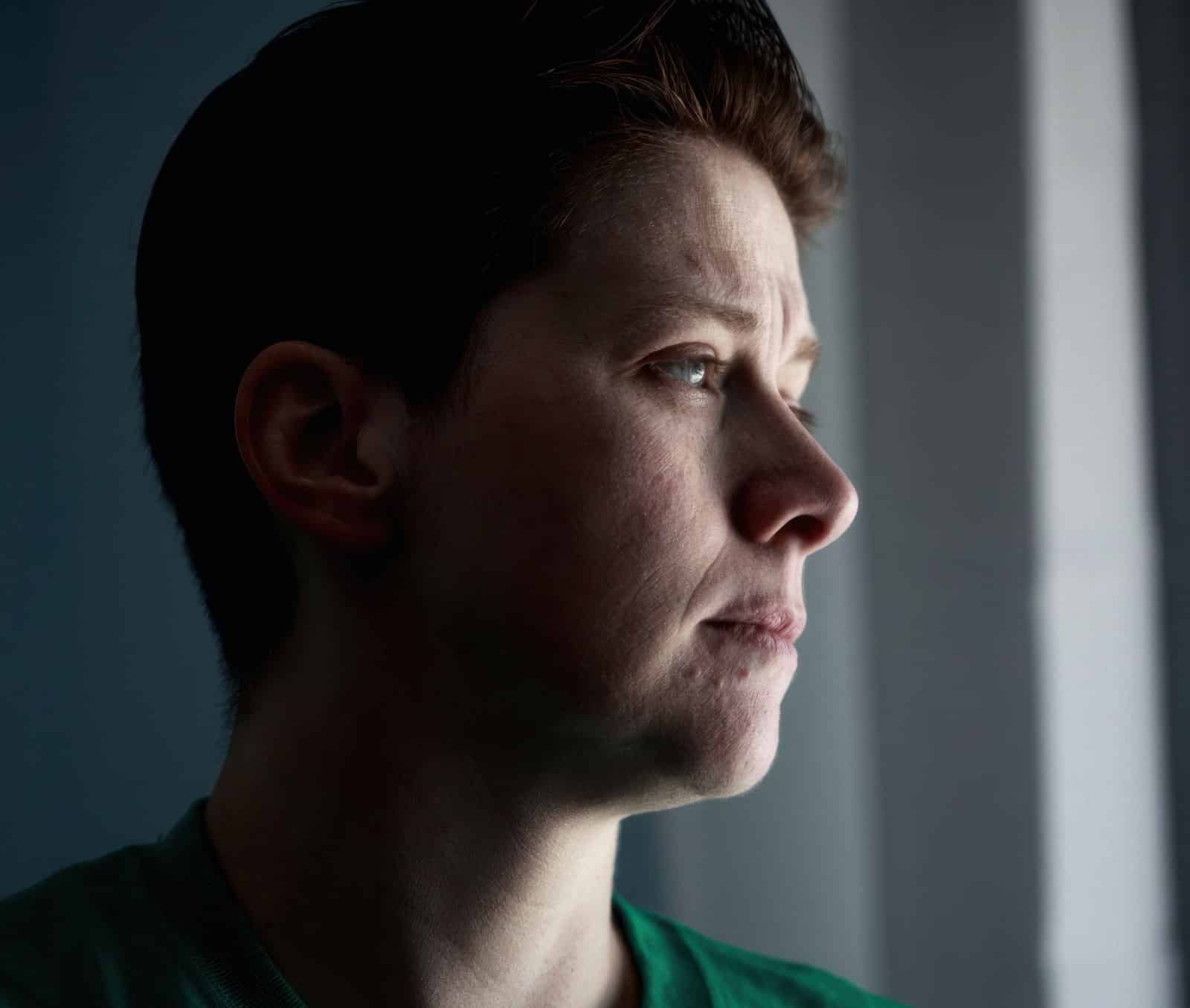Family abuse survivor speaks out about Police Family Violence Orders
By Jess Flint
Posted to The Advocate online, 14/03/24 – 4:30pm (Updated 15/03/23)
Engender Equality released a report that explores the phenomenon of misidentification of predominant aggressors in Tasmania – put simply, this refers to incidents where a victim of abuse may be incorrectly identified as the perpetrator.
Contributing factors to misidentification may include instances where aggression was displayed as a response to abuse in retaliation, frustration, or self-defence.
The report noted that Tasmanian Police have the ability to issue on-the-spot PFVOs of up to 12 months. In other Australian jurisdictions, on-the-spot orders are temporary and last between 24 hours and 28 days.
Police family violence orders are supposed to keep victims safe
By Hayley Gleeson
Posted by ABC News online 05/03/23 – 5:00am (Updated 05/03/23 – 10:51am)
For years domestic violence workers around Australia have been warning of a growing misidentification crisis: of mounting cases where police have mistaken the victim for the perpetrator and taken out an intervention order against them or charged them with criminal offences. Often it’s because female victims have presented as “hostile” or “hysterical” — or because they’ve fought back or defended themselves — and police haven’t gathered all the facts, or dug into the couple’s history of coercive control, or realised an abuser is trying to manipulate the system.
Woman living with autism is accused of being the aggressor
By Peter Vincent
Posted to Daily Mail Australia online 05/03/23 – 16:50 (Updated 05/03/23 15:24)
A woman living with autism phoned police for help after she was assaulted by her partner before she was mistakenly identified as the aggressor. Anna* was heaped with the blame despite her partner crushing her into a door at his home in southern Tasmania during an argument over money in 2021.
Her story comes after a report was released this week showing people who were mistakenly identified as aggressors were struggling to have their names cleared.
Tasmania remembers domestic violence victims with candlelight vigils
By Pulse Tasmania, 01/05/24 – 7:00pm
Hundreds of Tasmanians gathered in Hobart, Launceston and Ulverstone to remember victims of domestic violence.
Families of victim survivors joined advocates and community members in lighting candles to honour those who have lost their lives on the national day of remembrance.
The invisible epidemic of brain injuries among domestic violence survivors
By Stephanie Wood
Posted to PRIMER, 2023
Domestic violence is frighteningly common. Now experts are worried that many women who sustain head trauma suffer from undiagnosed brain injuries.
The dangerous form of abuse around food that often goes unnoticed
By Kellie Scott
Posted to ABC Everyday online 7/02/23
“I was constantly run off my feet so I could never take a moment to myself for anything”. – Nova, late 20s
Food control is a form of coercive control that is often invisible and potentially life-threatening, explains Alina Thomas, the CEO of Engender Equality.
Food control was just one aspect of abuse Nova experienced in the relationship she has since escaped.
“If he didn’t want to eat what I was making, he would demand I leave to get something else for him,” Nova, in her late 20s, says.
“He’d say he’d watch what I was cooking, then allow it to burn while I was gone so … me and my children would have nothing”.
Other times, he would give food set aside for her children to his pet dogs, or take it out of the fridge so it went bad.
Nova’s ex would steal money she needed for groceries, make negative comments about her body, stop her from exercising, and criticise her food choices.
He would also make demands around food that impacted her ability to complete basic daily tasks, like showering.
“Every time he wanted a coffee or something to eat, he would have me drop whatever I was doing to make it for him. Like stopping me from bathing, or [he would] wake me up in the middle of the night to go make him what he wanted”.
Deborah thought her abuse was normal - but a late autism diagnosis changed everything
By Megan Oliver, with photography by Maren Preuss
Posted on ABC online 09/01/23 – 5:10am (Updated 9/01/23 – 11:33am)
All I ever learned was that it was my fault. I had some dark fault inside me where I was always getting it wrong. – Deborah Hunter
Deborah Hunter always knew she was different from those around her — she communicated differently and struggled socially, but didn’t know why.
“I took it to be some kind of intrinsic naivety. I never seemed to get it right,” she said.
“Even when I tried to be a ‘good girl’ and behave as appropriate or expected, I was forever getting things wrong.”
The emotional and physical abuse started in Deborah’s family home, but she didn’t realise it was abuse.
Tasmanian woman shares experiences of family violence ahead of election
By Bec Pridham
Posted to The Examiner online 10/04/22 – 3:30am
Charlotte’s* first encounter with family violence was as a child. Living with incessant bullying and harassment in her family home, she was forced to flee in the middle of the night at age 16.
The violence left behind a devastating legacy that followed her into her intimate relationships – the trauma, coupled with her disability, leaving Charlotte vulnerable.
“It’s often expressed that autistic people lack empathy. You could describe that as a disability in communication. We are unable to perceive simple conversational cues, and this causes people to be uncomfortable. It causes misunderstandings both ways. It causes a lot of conflict,” she said.
“Relationship after relationship the men learned to manipulate [me], a person with autism, to manipulate to the point of an autistic meltdown, and they then claimed ‘see, look what you made me do’.”
“Then they punch you.”
Charlotte met the father of her son at a young age.
She fell pregnant early into the relationship, which left her feeling locked in.
“I had a strong sense of needing to survive. If it hadn’t been for my son, I wouldn’t have”.
Her partner was violent and coercive, taking her car keys so she could not escape, controlling how she spent her money, forcing all the child caring responsibilities upon her.
“My partner broke my neck and (according to him) it was my fault. And once it happens time after time after time after time, you’re convinced that it’s your fault.”
She never recovered from the incident, left physically disabled and in constant pain.
“I didn’t leave him until my son was 16 months old.”
While each victim’s story is nuanced and incredibly complex, Charlotte’s escape from violence is somewhat of an anomaly.
She did not leave. He did.
“I wasn’t going to leave. I wasn’t going to run again.”
“It’s very shameful to admit to domestic violence and so you don’t. And so I’ve suffered in silence. I took it to be my fault and tried to be a good girl. People leaving abusive relationships shouldn’t be made to think it’s their own fault”.
Charlotte said she was “lucky” to have a close circle of friends she could lean on. They began inviting themselves to dinner at her home every evening, telling her partner he needed to leave. After three months, he succumbed to the pressure, and moved out.
Charlotte did not receive her autism diagnosis until later in life, when her complex post traumatic stress disorder rendered her unable to manage her life.
“I was forced to begin to address the abuse in my adolescence in the family home, the reason I had to leave, why it came to that. If I’d only known earlier, if there was only enough support … I cannot stress how vital that diagnosis is.”
Charlotte said Australia’s family violence situation has made little progress since she left decades ago.
“People who are suffering from gaps in equality, people that are leaving violent and abusive relationships or families, are still at a disadvantage as much as they were 30 years ago. They really are. And this is both in terms of society acceptance and lack of support”.
“It’s very shameful to admit to domestic violence and so you don’t. And so I’ve suffered in silence. I took it to be my fault and tried to be a good girl”.
“People leaving abusive relationships shouldn’t be made to think it’s their own fault.”
It is a message resounding from those working in the family violence sector, who point out that raising the profile of women is desperately needed if Australia is to really address the issue.
Women’s Legal Service Tasmania chief executive Yvette Cehtel said Australia’s focus needed to be on primary prevention, not just early intervention and response.
“If we want to change attitudes and the way people behave, then we need to get in early and we need to do it before there’s a problem and we need to have nuanced conversations with all of our young people about what respectful behaviour looks like,” she said.
Ms Cehtel said she was looking at the government to implement a positive duty on employers to prevent sexual harassment and promote gender equality.
She said we should understand family violence as being on the extreme end of a continuum of inequality.
“The attitudes and the behaviours that allow unequal treatment of women is all along that continuum,” she said.
“If we’ve got one in three people at work being sexually harassed, we’ve got a massive problem with equality in the country.”
Ms Cehtel referred to the Kate Jenkins report, Set the Standard, which lists diversity, equality and inclusion as requirements of a safe and respectful workplace.
Launceston White Ribbon Committee secretary Carol Fuller said there was a difference between equality and equity.
“Women aren’t the same as men, so they have different needs. And to live a successful life and contribute all that we can to society, we need equity,” she said.
“Equity means that because we’re different, we need different systems. We need different processes that allow equality to happen.”
Ms Fuller said the government focused much of its resources on supporting people in danger, but needed to look at the bigger picture.
“What I would like to see, what White Ribbon would like to see, is stepping back and stopping it before it even starts,” she said.
“You can’t do that immediately, it’s a long-term drawn out changing of societal attitudes.”
Ms Fuller pointed to harmful gender stereotypes, sexist language and jokes, unequal laws and unequal pay as factors that might seem innocuous, but lay the foundation for violence.
She wanted to see the government pour the same efforts it did into changing societal attitudes to smoking, using the same consistent, prolonged and broad campaigning.
“I don’t think the government can do anything immediately in terms of stopping it … there’s no magic wand. This is going to take generations. But we’ve got to start now,” she said.
The state government launched the Safe Homes, Families, Communities plan in 2019, investing $26 million over three years in responding to and preventing family and sexual violence.
In March, the Commonwealth committed $20 million to electronically monitor high-risk perpetrators deemed high-risk.
Charlotte has been working through her PTSD with professional help.
She has also become an advocate for change, helping other women.
“If people know that someone like me has pushed through it, then anyone can do it,” she said.
Sexual assault, stigma and suicidality
Mercury Newspaper | July 2021
Despite increased attention given to suicide prevention, we see little if no reduction in suicide statistics. Coronial inquests look at the circumstances around individual cases. The new Royal Commission into veteran suicides will look into “military life” but it is not leading with the impact of trauma as a causal factor. A common response to the high rates of suicide and suicide attempts among sexual assault survivors is to lament their ‘lost battle’ with stress, anxiety and depression.
With an increase in disclosures of sexual assaults in Australia, comes a growing awareness of the length of time it takes for a person to disclose and the correlations between the experience of sexual assault and suicide.
If we unpack this response for a moment, the idea that sexual assault flicks a mental health switch that results in a suicide, we see that we risk reducing the context of a person’s death to a poorly managed individual response to a triggering event. From the perspective of specialist support services, there is undoubtedly much more to the story of sexual assault and suicidality than poorly managed mental health.
While mental wellbeing is acutely relevant to suicidality, social conditions (therefore conditions that can be changed) are also inevitably present within the experience of suicide. In particular, the experience of stigma is recognised as being significant for people experiencing suicidal ideation.
The high rates of suicide for Aboriginal and Torres Strait Islander peoples and for LGBTI+ community members tell us that there are shared experiences of stigma, mixed with social exclusion and discrimination that increase the risk of suicide. When these elements overlap with normal human experiences of anxiety and stress, the conditions are in place for increased suicide attempts and higher fatal suicide statistics.
Childhood sexual assault is one of the most stigmatising experiences a person can endure. And while fear of social stigmatisation prevents many sexual assault survivors from accessing support or reporting their experience, the coinciding internalised stigma is a burden that results in childhood sexual assault survivors taking on average 24 years to disclose the crime, if they disclose at all.
The pervasive burden of stigma is described well by a survivor who declared, “even my cat stigmatises me.“
Even without disclosing the experience of abuse, survivors often feel deeply humiliated, disgraced and ashamed. They rightly fear being blamed by others and most will blame themselves. They can be left bearing such responsibility for what they have endured that a disclosure feels almost like an admission. As one survivor shared, “Internalised stigma feels like wearing a neon sign that loudly declares your experience even when you’ve never told another person.“
There are many reasons for this, including the fact that in normal childhood development children blame themselves for traumatic things that happen. Further, the assault itself may have been delivered as an act of punishment: “if you weren’t naughty I wouldn’t have to do this.” These conditions are compounded by Draconian ideas about sex that suggest many sexual acts are sinful and the result of a personal failing.
Research shows survivors from already marginalised populations are more likely to be disbelieved and receive a negative response when they seek help compared with the general population. For marginalised people, the stigma intensifies.
When we think about the high rates of suicidality amongst people who have experienced sexual assault, we must think about the social context of accountability, responsibility and justice in which they lived. If the assault is constructed as being the fault of the victim, this becomes the experience that they have to live with.
When we think about the suicide of sexual assault victims, we need to acknowledge the conditions in which they lived. People who have experienced sexual assault don’t end their life because of a failed attempt to manage their mental health, but because the conditions of their existence held them responsible for the trauma and very likely afforded a level of protection to the perpetrator.
The antidote to this situation is to believe survivors, regardless of their social circumstances. We need to elevate survivors to the position of expert, regarding both their lived experience and the response they need to survive it. Our service and justice responses must be designed to provide comfort and restore dignity in every way. For as long as this is not occurring, we will be limiting the opportunities for accountability in the perpetration of child sexual assault.
Another necessary correction is to expect and model transparency at all times. Understanding that sexual assault always occurs when there is an imbalance of power means calls for the experience of power to be scrutinised with no exceptions – at home, in the workplace, in schools and elsewhere. For those with power over others and in positions of power, the need to understand the responsible use of power is essential. Values, language and behaviours that blame, minimise, or disregard sexual assault need to be exposed, challenged and eradicated.
When people who have experienced sexual assault end their lives, we must acknowledge that the cause of their death lies in the trauma they have been subjected to in a society that has not only failed to protect, but also failed to respond with due compassion and accountability.
Alina Thomas is the CEO of Tasmania family violence service, Engender Equality. In her work, she calls for a social examination of gendered issues. Alina is a white woman, living on the stolen lands of the palawa people.
If you would like to talk to someone about your experience please call 1800 RESPECT on 1800 737 732.
Upholding the presumption of innocence does not preclude believing victims
Published in The Mercury, 19 May 2021
With distressing regularity, women in Australia are disclosing their experiences of sexual and interpersonal abuse at the hands of male politicians and men in senior public office. As we come to grips with the pervasiveness of a culture of sexual impunity that, it seems, reaches even the highest echelons of Parliament, we are witnessing another unsettling trend: the failure of our leaders to condemn the abuse in question.
The default explanation is all too familiar: the individual against whom the allegations have been made has denied any wrongdoing; they are entitled to the presumption of innocence; it’s a legal matter and no comment can be made.
And yet, we know the prevalence of violence against women is abhorrently high in Australia. We also know that sexual and interpersonal crimes often go unreported and are even less frequently prosecuted in the courts. According to the Australian Bureau of Statistics, fewer than one in five women have reported their most recent sexual assault to police.
For many women and children who have been abused, disclosing the experience comes at an enormous personal cost. Their integrity is doubted, their mental health is called into question; at some level we ask, “What could she have done to prevent it?”. If a case does reach court, the ensuing stress will cause a lasting impact on the victim-survivor. For many, the justice process becomes the defining story that shapes the rest of their life.
The barriers to reporting sexual crimes are only heightened when we insist that the law itself prevents us from condemning acts of abuse and expressing support for victim-survivors. The presumption of innocence should never be positioned in opposition to the fundamental principle of listening to, believing, and supporting people who have experienced abuse. While we continue to feel that we must do one or the other we are missing a critical opportunity to address broader cultural values that condone violence against women.
When our leaders and others in positions of influence feel compelled to ‘take a side’, they immediately declare that one account of events deserves to be upheld, inevitably suggesting that the other account should be called into question.
If we unpack this automatic positioning of a disclosure of abuse in opposition to the principle of law, we understand the reluctance of victim-survivors to report their experience. Each time a public figure refrains from commenting on a disclosure of interpersonal abuse they reinforce the common myth that women fabricate sexual crimes. Furthermore, they demonstrate that the wellbeing and discretion of people who use abuse will be protected by their contemporaries.
Supporting survivors alongside upholding the principle of law isn’t only possible, it is essential. The contemporary spotlight on gender-based violence brings with it an expectation that our political and cultural leaders will demonstrate compassion and respect towards all victims of violence and abuse.
Allegations of abuse will continue to arise and the response must be to offer an expression of gravity to the allegation. Leadership must deliver a statement of empathy and extend dignity to the people who have potentially exposed the misconduct.
The challenge for this decade is to shift the complacency that tolerates gender-based violence. The insidious belief that violence against women in an unfortunate but inevitable ill must be addressed at every opportunity. Our goal must be to bring to light the everyday behaviours that perpetuate this complacency. Talking about abuse should not create more harm than the abuse itself.
As for the alleged behaviour, whether it has occurred or not, its very possibility should be condemned by our leaders. Condemning an act or indeed a culture of abuse is entirely possible without defaming individuals.
Improving the way our leaders respond to accusations, against themselves and their peers, will invite a new level of accountability, new standards of behaviour and play a key role in the culture change that is so vital to reducing sexual violence in Australia. The time to develop this maturity is now.
Authors:
Alina Thomas, CEO Engender Equality
Elinor Heard, Policy & Communications Officer Engender Equality.









